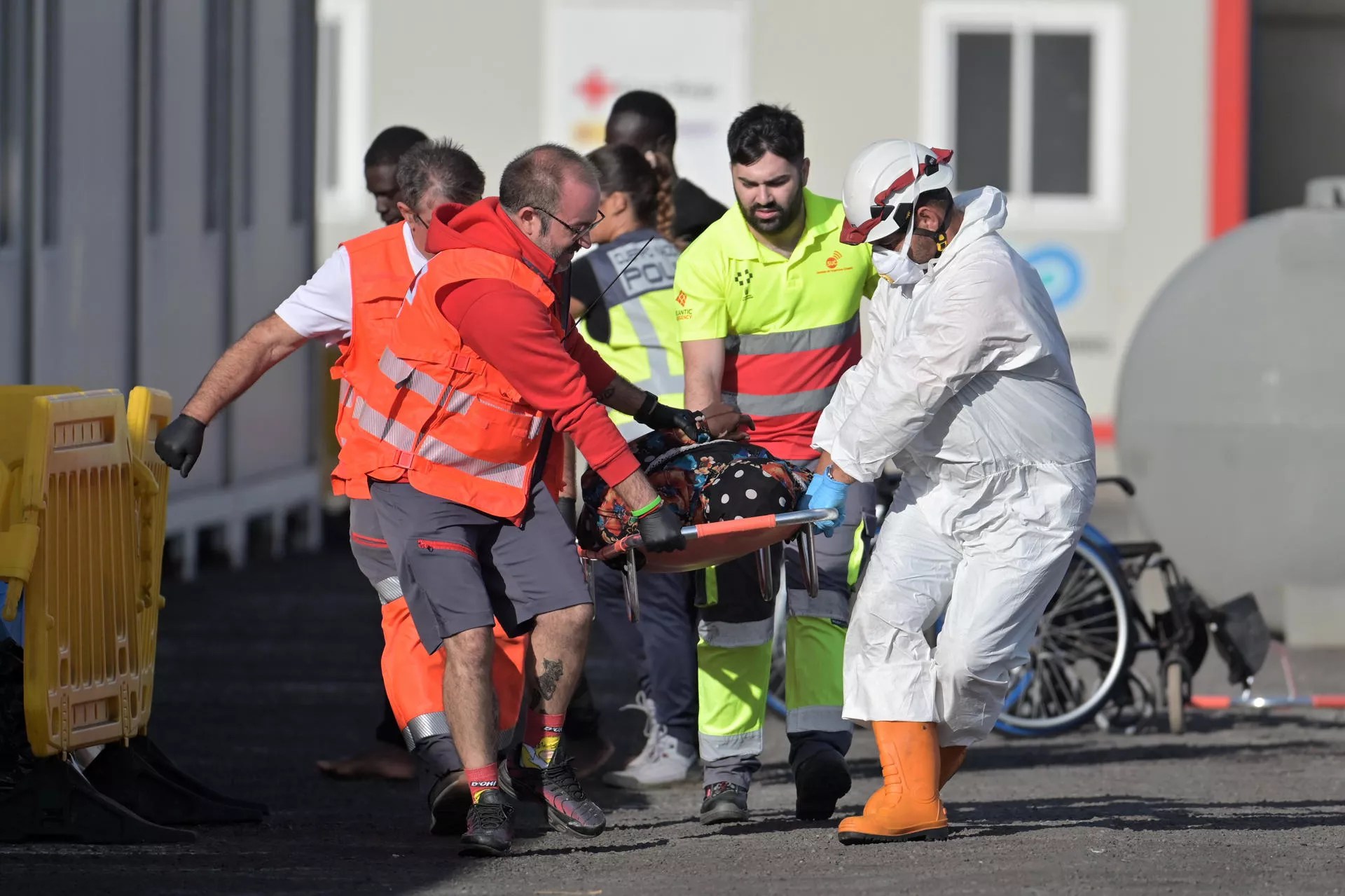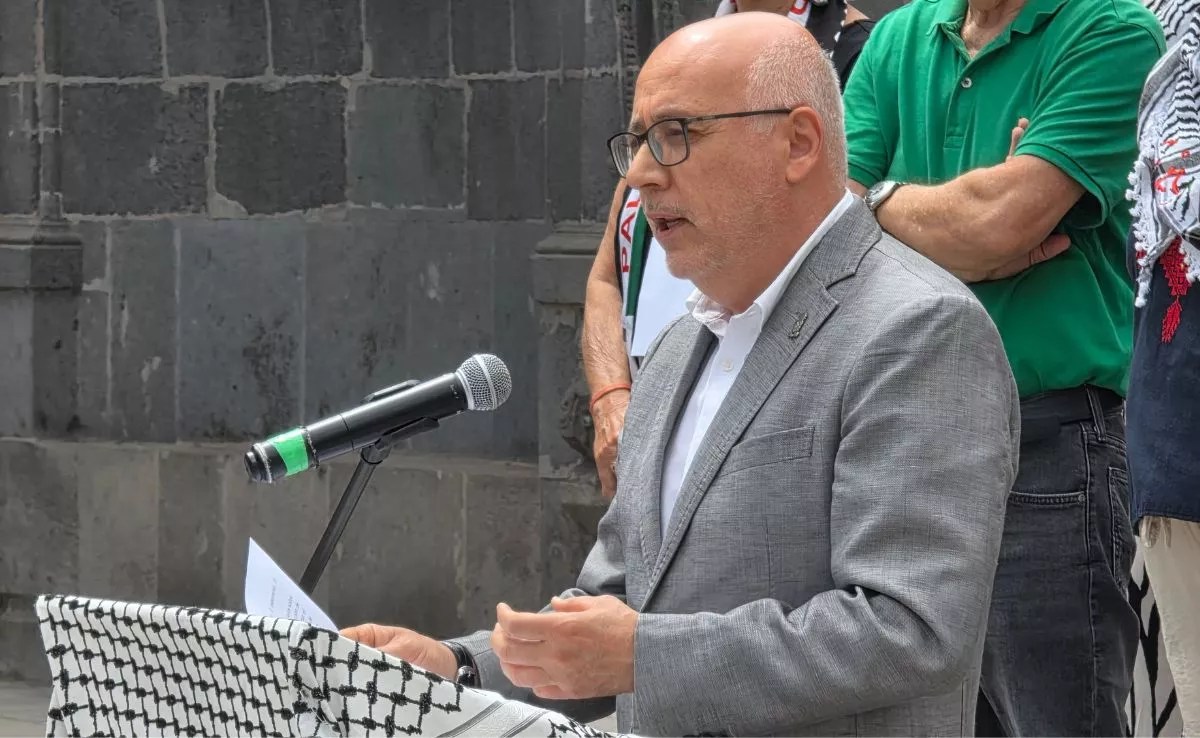The Provincial Court of Santa Cruz de Tenerife has ordered to reopen for the second time the so -called repair case on alleged irregularities in hiring services at the City of La Laguna during the mandates of Fernando Clavijo (2011-2015), current president of the Government of the Canary Islands, and José Alberto Díaz (2015-2019).
This judicial decision does not affect Clavijo, since the Second Chamber of the Supreme Court, through a car signed by the Canarian magistrate Manuel Marchena, The separate piece filed in March 2023 that he had opened to investigate the general secretary of the Canary Coalition (CC), who four years before, in July 2019, had been appointed senator and, therefore, had agreed.
However, the case now resurrects in the Ténerife courts for the nine people investigated, politicians and officials of the Laguna. The hearing has estimated the appeal filed by the complainant of the case in 2018, Santiago Pérez (councilor of Avante at that time), and has revoked the archive order decreed in May 2024 by the titular magistrate of the Court of Instruction 4 of San Cristóbal de la Laguna, Graciela Pérez-Valencia.
That car was the second that the judge signed in the same direction. The first was issued in April 2023 and in it extended to all the accused the arguments that the Supreme had wielded to exempt Fernando Clavijo from criminal responsibility.
The Tenerife audience revoked that first file in January 2024 and ordered that a new motivated resolution be issued. That is, it was not enough to host the criteria that the Supreme Criminal Chamber had stated with respect to Clavijo. The judge had to analyze, investigated for investigated, whether or not there were indications of the crimes of prevarication and embezzlement of public flows.
Four months took the magistrate to file the cause again. In that order, dated May 23, 2024, the instructor reduced to “administrative irregularities” the denounced practice, to repeatly extend millionaire contracts for municipal services outside the legally established procedures (without calling a contest) and obviating the warnings (the repairs, hence the name of the case) that formulated the general intervention on the violation of the public sector contracts.
These irregularities “do not imply for themselves that we are faced with a conincted crime of administrative prevarication,” said the instructor in the now revoked file. The judge argued that these extensions of extension were not “rudely illegal” and that they had been issued “in public interest to guarantee the continuity of municipal services.”
“It would not be understood in that case that such a repeated conduct, so made to light without dissimulation, or concealment, would not have been denounced up to several years later. Let us take into account that facts between 2013 and 2017 are denounced and this despite the obligation that governs about any official to denounce public crimes,” said that car.
In its last resolution, notified on Tuesday to the parties, the Santa Cruz de Tenerife audience does not come to assess whether the file decreed by the instructor “is correct or not.” What is clear is that the judge “has not fulfilled” what he asked last year: to motivate the dismissal of the cause, describe the acts and the relationship of each of those investigated with those acts and, from there, explain why he appreciates or why he does not appreciate indications of crime.
The audience, with María Teresa Hernández as a speaker, specifies that what is substantiated in this investigation are the decrees (of contract extensions) signed between March 2015 and February 2017, while the Supreme Court analyzed more than a hundred resolutions dictated between 2011 and 2014, when Fernando Clavijo was mayor of La Laguna. “These are chronologically different facts and in which different people are involved, without the possible performance of each of the investigated to reach an identical solution, simply invoking the translation criteria (of the Supreme Resolution),” he remarks.
For the room, there is a relevant fact in the archive order issued by the Supreme Court in March 2023. And it is that the high trbiunal understood that the performance of the then investigated (the aforement They made coming to reject the repair of the intervention. ”
The Audience of Santa Cruz de Tenerife points out that the Judge of Instruction is limited to citing the decrees “without analyzing what is the possible illegality and who would have committed it and why it is prudent to understand applicable the same criteria that the Supreme Court already established” when “the possible commission of an alleged crime of prevarication is already being considered, but in addition to the embezzlement of public flows.”
The appeal presented by the popular accusation (Santiago Pérez) affected this aspect, in which the archive car had ignored specific economic damages (embezzlement) about events that had occurred after the exit of Clavijo from the City Council of La Laguna towards the Government of the Canary Islands.
“The instructor judge has been incomprehensibly unnoticed that this investigation is not intended only the resolutions in public procurement issued by the municipal authorities against the legality reparations made by the general intervention until the end of the first quarter of 2017, but those that were given later, giving continuity to a practice that the Anti -Corruption Prosecutor’s Office has considered constitutive of continuing to prevail. popular accusation.
As an example, he alluded to the contract signed in 2018 with the Urbaser company for the management of the collection and transfer of urban waste and road cleaning. This decree authorized the continuity “paying the same price”, despite the fact that the fleet of vehicles “became municipal property” at the end of the contract, generating, in the opinion of the appellant, quantifiable damage to public coffers.
For the complainant, the archive of this criminal procedure can constitute “a precedent of extraordinary importance and demolish effects on the management of public administrations”, in addition to the “weakening of the previous control mechanisms” and the legitimation of a procedure, to order reports “to academic or renowned personalities in the legal fields” to contradict the criteria of the auditors, which converts into “wet paper” legal and the role of officials with national authorization.
The reopening of the cause implies that the former mayor José Alberto Díaz Domínguez (CC), the former Attention Fallero, Aymara Calero, Agustín Hernández (CC), Mónica Martín and Javier Abreu (PSOE), and three other municipal officials, Asier Amador, Rosa Ana García and Carlos Gómez, are investigated.
.
















